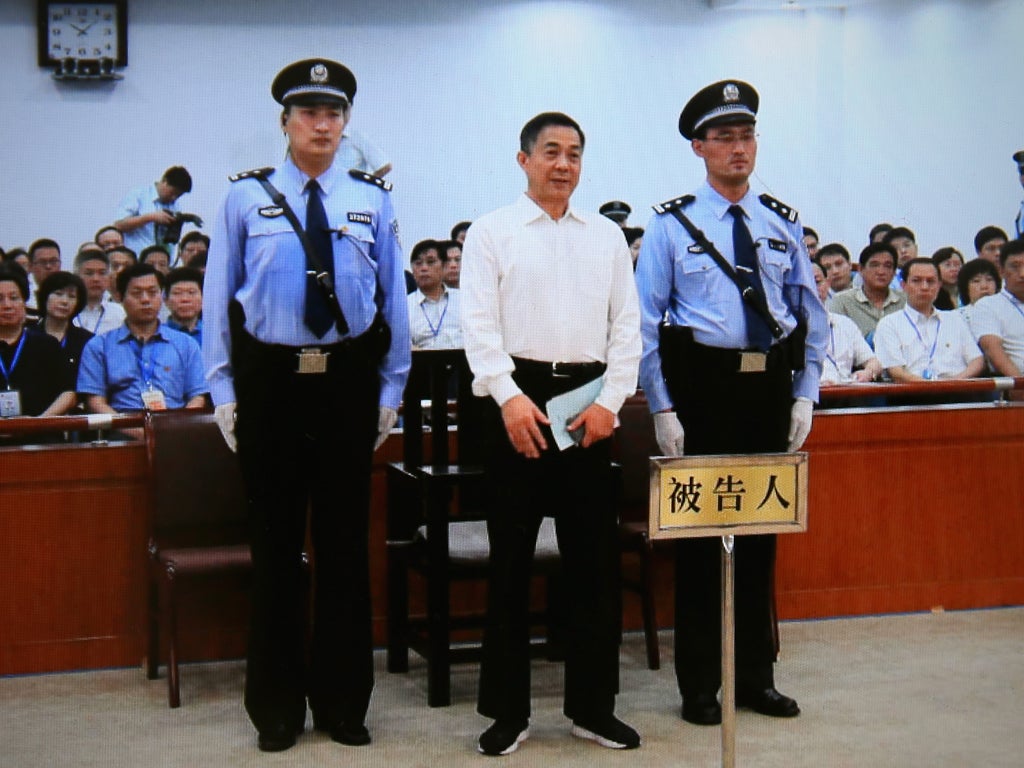The Bo Xilai case highlights China’s institutional corruption
The state makes some gesture towards curbing state corruption, but family relationships and tradition are at the core of the problem

The sentencing of Bo Xilai has put the spotlight on China’s massive corruption problem. In a country where most of the economy is owned by the State, public officials regard bribery and corruption as a way of life.
These officials have the power to give favours and to fix deals. They will take a bung to prefer one company or investor over another. They are cheaply bought as they are deeply embittered at their low pay compared to that of the private sector.
In the rip-roaring Chinese economy which is now growing at some 8 per cent a year, private sector operators have accumulated fortunes. Top public officials, still living under the Communist Party yoke, think they should share in the booty.
The state makes some gesture towards curbing state corruption. Every year, it prosecutes some 40,000 officials, but most of these are low level tax collectors or council officials, doing things like slipping a bung to a council driver, to borrow his car for the weekend.
Around 2000 officials at Division chief level get their collar felt while a further 200 department chiefs are investigated. The People’s Supreme prosecutors office investigates roughly five of the highest public officials, such as heads of government departments, governors of provinces and presidents of state corporations. In fact, this number has more than doubled since the appointment of new President Xi Jinping.
The crackdown does not touch the problem, says Steve Tsang, an academic at Nottingham University. ‘Today’s campaign deals with the symptoms and not the causes. The campaign against corruption will run into huge difficulties when it targets not the individual persons concerned, but the families of those top leaders who have amassed enormous wealth. How are you going to be credible if those people continue to get away with it?’
Family relationships and tradition are at the core of Chinese corruption. A system of trust called ‘Guanxi’ involves giving gifts. This system is deeply entrenched. As the economy has grown, the stakes have increased.
Family members and neighbours prefer to do business with each other. Western demands for transparency and openness are alien to people who prefer to work with those they know than those who can produce legal contracts.
‘Corruption in China is ‘institutional. It is social not individual. There is systematic corruption, says He Jiahong, a former prosecutor and academic. ‘If the government tried to uproot corruption by removing the corrupt wealth from public officials, there would be a revolution. Chinese has had enough revolutions. This one will never happen.’
Join our commenting forum
Join thought-provoking conversations, follow other Independent readers and see their replies
Comments
Bookmark popover
Removed from bookmarks